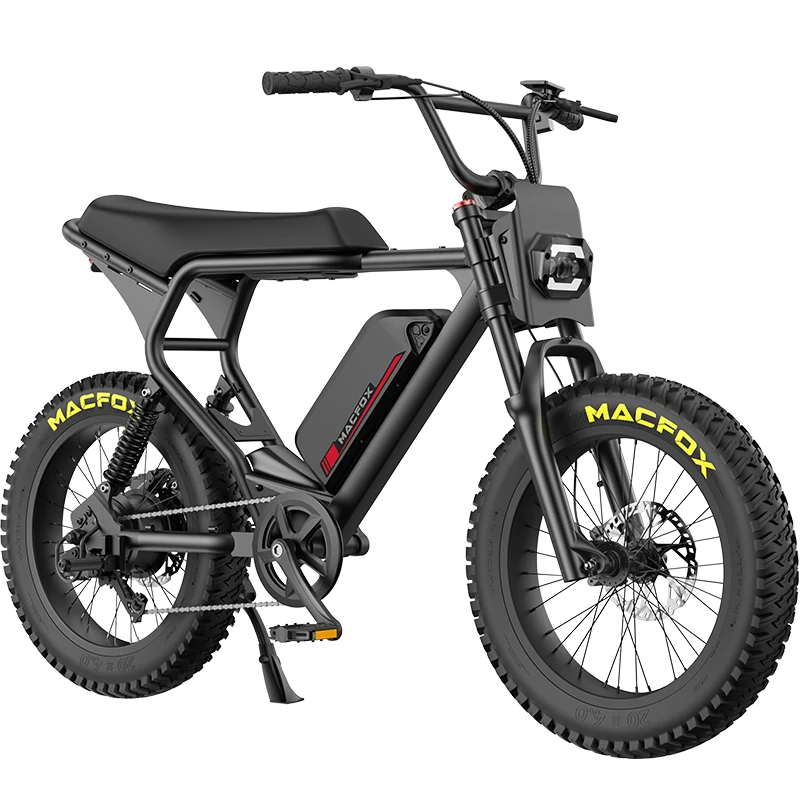Amidst the heart of New England, in the scenic state of Rhode Island, often affectionately hailed as the Ocean State, a revolution is taking shape in the field of transportation. This transformation is being ushered in by the forward-thinking e-bike legislation of Rhode Island. In a world where urban centers worldwide grapple with the twin challenges of traffic congestion and environmental sustainability, e-bikes have emerged as a beacon of hope. Rhode Island, with its blend of historical allure and innovative spirit, stands at the vanguard of this transformative movement.
A Deep Dive into E-bikes and Their Growing Popularity
Electric bicycles, more commonly known as e-bikes, represent a harmonious fusion of traditional pedal-powered bicycles augmented with a cutting-edge electric propulsion system. This compact motor, unassuming in its size, imparts an additional thrust to riders, rendering uphill ascents more manageable and long-distance journeys less formidable. The allure of e-bikes lies in their multifaceted utility. They cater to a broad demographic spectrum, ranging from the daily commuter in search of an efficient and eco-conscious mode of conveyance to the fitness enthusiast seeking a synthesis of manual and motor-assisted cycling.
E-bikes manifest in various incarnations, but for the sake of regulatory clarity, they are classified into three distinct categories:
-
Class 1: These e-bikes are endowed with a pedal-assist mechanism. The electric motor springs into action only when the rider engages in active pedaling, offering a gentle augmentation and ceasing its assistance upon reaching a velocity of 20 miles per hour. This variant finds favor among urban denizens, ideal for city commutes and leisurely jaunts.
-
Class 2: Noteworthy for their throttle mechanism, Class 2 e-bikes can propel themselves without necessitating active pedaling from the rider. However, akin to Class 1 counterparts, electric assistance subsides upon attaining the 20 miles per hour threshold. This category enjoys popularity, particularly among individuals who may require intermittent respite from pedaling, such as senior riders or those with physical constraints.
-
Class 3: Bearing semblance to Class 1 e-bikes in their pedal-assist characteristic, Class 3 e-bikes distinguish themselves through their elevated speed threshold. The motor continues to support the rider until a velocity of 28 miles per hour is achieved. Given their swifter pace, they find favor among long-haul commuters.

Choosing an Electric Bicycle in Rhode Island
Compared to Level 1 e-bikes, Level 2 e-bikes feature a throttle design that offers superior quality at a competitive price. Its design ensures a comfortable ride without causing fatigue, allowing users to reap the benefits of exercise without excessive sweating. Whether you want to save time, transport heavy loads or just enjoy a leisurely ride, Level 2 e-bikes can meet the needs of a wide range of users, especially middle-aged, elderly and people with certain physical limitations. For daily commuting or vacation riding, consider a Level 2 e-bike as your best option. Among them, the Macfox X1 electric commuter bike and Macfox X2 off road ebike stand out, offering unparalleled value for similar products. For more guidance on buying the best commuter ebike or off-road electric bike, we invite you to check out our previous blog posts. If you have any questions about electric bike selection, be sure to read before buying.
On the other hand, Level 3 electric bicycles place higher physical demands on the rider. They are also generally more expensive compared to Levels 1 and 2. It’s worth noting that the Rhode Island state government has stricter regulations for Class 3 e-bikes, often restricting them to certain bike lanes and sidewalks. If you're looking for more speed and have a flexible budget, a Level 3 e-bike might be better for you.
Rhode Island's Vision for E-bike Integration
The Rhode Island House of Representatives, in a display of foresight and adaptability, has been diligently crafting legislation to furnish a well-defined framework for the adoption of e-bikes within the state. Spearheaded by Representative Rebecca Kislak, this bill constitutes a comprehensive document that delves into various aspects of seamlessly incorporating e-bikes into the state's transportation milieu.
-
Meticulous Classification: At the core of this legislation is the meticulous differentiation it draws between e-bikes and conventional motor vehicles. By averting the misclassification of e-bikes as motor vehicles, this legislation ensures that riders can reap the benefits of e-bikes devoid of the cumbersome regulations synonymous with motor vehicle ownership.
-
Integration into Infrastructure: Acknowledging the burgeoning popularity of e-bikes, this bill outlines guidelines governing their utilization across diverse terrains. Be it pedestrian pathways or dedicated cycling routes, e-bikes are accorded approval, contingent upon adherence to specific speed constraints. This initiative not only fosters e-bike usage but also safeguards the well-being of all pathway users.
-
Safety Mandates and Directives: No legislative enactment is deemed complete without due attention to safety concerns, and this bill is no exception. It mandates the usage of helmets for riders below the age of 16 and establishes unequivocal speed criteria for each e-bike class. Furthermore, it furnishes directives pertaining to the requisite equipment and features e-bikes must incorporate, thereby ensuring a secure riding experience for all.
-
Statewide Uniformity: One salient feature of this legislation is its unwavering emphasis on uniformity. By preempting local municipalities from imposing additional regulations specific to e-bikes, this bill ensures that riders across the state function within a consistent framework of rules, obviating confusion and fostering a harmonious integration of e-bikes into the state's transportation ecosystem.
Related Reading: The Joy of Riding Uphill with an E-bike
The Economic Ripple Effect of E-bike Adoption
The adoption of e-bikes within Rhode Island transcends being merely a transportation paradigm shift; it constitutes an economic catalyst of profound proportions. As more residents embrace e-bikes, there is an upsurge in demand for ancillary services and infrastructure. Local enterprises, spanning from bicycle shops to cafes, bear witness to a surge in patronage as e-bike enthusiasts frequent these establishments. The ease of parking e-bikes and the ability to navigate through congested areas endow riders with facile access to local businesses, conferring a much-needed boost to the local economy.
Moreover, the e-bike industry itself is a crucible of innovation and employment generation. Opportunities abound, encompassing the domains of manufacturing, assembly, sales, maintenance, and post-sale services. Local artisans are crafting bespoke e-bike accouterments, software developers are engrossed in the development of e-bike tracking and security applications, while mechanics specialize in the repair and maintenance of e-bikes. This economic ripple effect revitalizes Rhode Island's economy, engendering a diverse array of employment prospects and nurturing entrepreneurship.
E-bikes: A Social Equalizer and Promoter of Community Cohesion
E-bikes are also emerging as potent instruments of social equitability. Their affordability and user-friendliness render them accessible to a broad demographic, bridging socioeconomic disparities. For many, e-bikes are not just a mode of conveyance but a means to access improved employment prospects, educational opportunities, and social services. They empower individuals, affording them mobility and autonomy to traverse extended distances devoid of the financial encumbrance associated with car ownership.
Furthermore, the communal facet of e-biking must not be underestimated. Group rides, community workshops dedicated to ebike maintenance, and e-bike festivals are fostering a sense of camaraderie among residents. These gatherings transcend the realm of e-bikes; they serve as platforms for community bonding, cultural exchange, and mutual enrichment. Rhode Island, renowned for its close-knit communities, is witnessing a fortification of communal bonds, courtesy of the burgeoning e-bike movement.

Conclusion
In summation, Rhode Island's proactive stance on e-bike legislation underscores its unwavering commitment to sustainable transportation. By delineating a clear framework for e-bike integration, the state not only promotes an ecologically conscious mode of transport but also guarantees its residents access to efficient and contemporary transportation alternatives.
FAQs
Q1: How does Rhode Island's e-bike legislation promote sustainability?
By promoting the use of e-bikes, which are eco-friendly and reduce carbon emissions, the legislation aligns with global sustainability goals.
Q2: What are the safety measures outlined in the legislation for e-bike riders?
The legislation mandates helmets for younger riders, sets clear speed limits for each e-bike class, and provides guidelines on essential e-bike equipment to ensure rider safety.
Q3: How does the legislation ensure uniformity in e-bike regulations across Rhode Island?
The bill prevents local municipalities from imposing additional e-bike regulations, ensuring a consistent set of rules across the state.


















